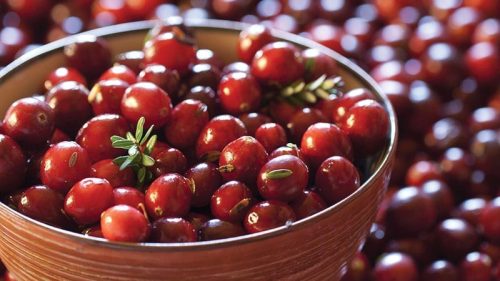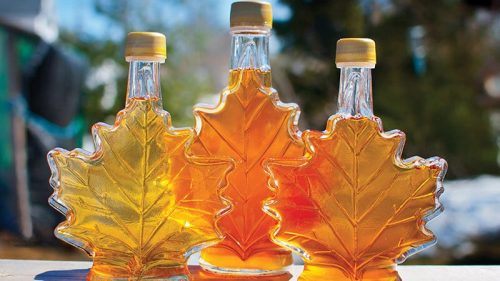The growth of Canada’s cherry industry is a major success story, exporting high-quality products to markets all over the world, while contributing to the economic vitality of rural communities. Today, the Minister of Agriculture and Agri-Food, the Honourable Marie-Claude Bibeau and the Minister of International Trade, Export Promotion, Small Business and Economic Development, the Honourable Mary Ng, announced that the Government of Canada has gained market access to South Korea for British Columbia’s high-quality fresh cherries.
Category Archives: Blog
The US Food and Drug Administration (FDA) is announcing the fiscal year (FY) 2023 user fee rates for importers approved to participate in the Voluntary Qualified Importer Program (VQIP), and accreditation and certification bodies interested in participating in the Accredited Third-Party Certification Program (TPP). The user fee rates are authorized by the FDA Food Safety Modernization Act (FSMA) and allow the agency to assess and collect fees to cover the FDA’s cost of administering these programs.
VQIP is a voluntary, fee-based program for the expedited review and importation of foods from importers who achieve and maintain a high level of control over the safety and security of their supply chains.
The FY2023 VQIP user fee rate will be effective on August 1, 2022, and supports program benefits from October 1, 2022, through September 30, 2023. Currently, the agency is not offering an adjusted fee for small businesses. Approved VQIP applicants must pay the user fee before October 1, 2022, to begin receiving benefits for the 2023 fiscal year.
TPP is a voluntary program in which FDA recognizes “accreditation bodies” that may accredit third-party “certification bodies.” The certification bodies can conduct food safety audits and issue certifications of foreign food facilities.
Please direct any questions regarding VQIP to the VQIP Importers Help Desk at 1-301-796-8745 or FSMAVQIP@fda.hhs.gov. Questions regarding TPP can be sent to FDAthirdpartyprogram@fda.hhs.gov.
Additional Information
Federal Register Notice announcing the FY2023 VQIP User Fee Rates
Voluntary Qualified Importer Program (VQIP)
Federal Register Notice announcing the FY2023 Third-Party Certification Program User Fee Rates
News from AAFC’s Market Access Secretariat
Update – July 29, 2022 – Subsequent to our message of July 25 regarding the European Union’s (EU’s) “Have your Say Notification: EU Import Controls on VMPs, Pesticides and Contaminants”, the Market Access Secretariat is providing the following further information:
The draft Delegated Regulation will apply to food-producing animals and certain goods intended for human consumption from third countries or regions. The purpose of this Delegated Regulation is to lay down all supplementary requirements for the entry into the Union of animals and goods from third countries, in accordance with Article 126(1) of Regulation (EU) 2017/625, in a single Delegated Regulation, thus merging the restrictions on the use of veterinary medicinal products and the requirements on contaminants and residues of veterinary medicinal products (also referred to as pharmacologically active substances within this draft) and pesticides with the requirements provided for in Delegated Regulation (EU) 2019/625, which is to be repealed.
The draft Delegated Regulation also supplements the requirements for entry into the EU, via such mechanisms as the establishment of lists (country, region, establishment), the issuance of official certificates or presentation of attestations.
The draft Delegated Regulation also establishes additional conditions to ensure that food-producing animals and animal products for the entry into the EU comply with:
1) restrictions and requirements at least equivalent to EU restrictions on the use of veterinary medicinal products and
2) EU requirements on contaminants and residues of veterinary medicinal products and pesticides in food-producing animals and goods.
For further information on products impacted and the additional conditions, please review the draft Delegated Regulation at the following link: open consultation/public feedback forum.
In addition to launching the open consultation/public feedback forum, the EU has also notified the draft Delegated Regulation to the WTO Sanitary and Phytosanitary Committee, through which the Government of Canada can provide comments. As we continue our own analysis we would appreciate your assistance in providing your general perspective and feedback on this regulation to the Market Access Secretariat to inform the development of the Government of Canada position.
The Market Access Secretariat, with the help of other federal partners is currently conducting an analysis of the draft Delegated Regulation and implications. Once the Government of Canada analysis is complete, we are committed to informing stakeholders of any outcomes.
Finally, please note this correction: the July 25 message requested your feedback to the Market Access Secretariat by August 3.
The deadline for submitting comments to the Market Access Secretariat is August 19. (Deadline for submitting comments to the EU’s “Have your Say” portal is August 3).
July 25, 2022 – On July 6, 2022, the European Commission (EC) launched an open consultation/public feedback forum in relation to a draft delegated regulation which would supplement Regulation 2017/625 — better known as the “Official Controls” Regulation — outlining the requirements for the entry into the European Union of food producing animals and certain goods for human consumption. Public feedback is open until August 3rd 2022.
Summary of Regulation: As provided by the EU within the context of the delegated act section (p.2) of the draft, the purpose of this regulation is to further supplement regulation (EU) 2017/625 and add additional conditions for the entry into the EU of animals and goods from third country. The regulation merges the restrictions on the use of VMP and the requirements on contaminants and residues of VMP and pesticides into a single Delegated Regulation.
Note: To avoid confusion, this notification is not the import rules for third countries in relation to 2019/6 Veterinary Medicinal product regulation. The EC is currently working on the development of a delegated act that will set out the requirements for animals and products of animal origin intended to be exported to the EU. The EU has committed to notifying when the draft delegated regulation is open for comments.
The Market Access Secretariat welcomes industry stakeholders and provincial and territorial partners to submit comments and/or feedback directly to the EU through the public consultation portal. We would also like to invite you to share initial thoughts and/or comments submitted to the EU with the Market Access Secretariat by August 3rd in order to help inform the Canadian position.
Should you have any questions, please communicate with the Market Access Secretariat at aafc.mas-sam.aac@agr.gc.ca
From 1 March 2023, all freight forwarders, air carriers, express couriers, and postal operators transporting goods to or through the European Union (including Norway and Switzerland) will be required to submit advance cargo information in the form of a complete entry summary declaration (ENS), under the second phase of the EU’s new customs pre-arrival security and safety programme – Import Control System 2 (ICS2) Release 2.
Economic operators’ responsibility to comply with ICS2 Release 2 requirements
From 1 March 2023, economic operators involved in handling, sending, shipping and transporting cargo, express or postal consignments to or via the EU by air have to comply with new advance data reporting requirements for pre-loading and pre-arrival customs risk assessments.
By collecting data about all goods entering the EU prior to their loading and arrival, ICS2 supports effective risk-based customs controls while facilitating free flow of legitimate trade across the EU’s external borders. ICS2 will simplify the movement of goods between customs offices at the first point of entry and final destination in the EU. For economic operators, ICS2 will streamline requests for additional information and pre-departure risk screening by customs authorities.
In addition to air carriers’ ENS filing responsibilities under the multiple filing regime of Release 2, freight forwarders, express couriers, and postal operators will also be legally responsible for providing data. They either have to share it with the air carriers, who will then complete the ENS filing requirements, or submit the data directly to ICS2. Postal operators and express couriers, who have previously been declaring partial information regarding inbound shipments (under ICS2 Phase 1), will now also be required to coordinate with their air carrier to submit all required data.
Those in the air transport sector who are currently filing advance cargo information into Import Control System (ICS) will have to gradually start filing this data into ICS2 during the operational roll-out of Release 2.
Preparing for ICS2 Release 2: Conformance Testing
Economic operators are strongly advised to prepare in advance for Release 2, in order to avoid the risk of delays and non-compliance.
To help prepare for the introduction of ICS2 Release 2, the European Commission will make available a conformance testing environment from July 2022 until February 2023, to be able to verify the economic operator’s ability to access and exchange messages with customs authorities through the intended ICS2 trader interface. This conformance testing is mandatory for all economic operators concerned.
Economic operators responsible for filing ENS data to ICS2 should determine whether they have an existing Economic Operators Registration and Identification (EORI) number. If not, they should contact the EU customs authority of their choice to get this number and to receive support in preparing for ICS2 Release 2. They should also evaluate their trade operations for the handling of imports into the EU and contact their selected customs authority to connect and take part in the upcoming Release 2 conformance testing.
What is ICS2 Release 2?
The EU Import Control System 2 (ICS2) is a large-scale initiative to enhance customs oversight of the movement of goods prior to their arrival at the EU external borders (air, maritime, land and inland waterways). ICS2 enables customs authorities to identify high-risk consignments that necessitate early intervention, while facilitating legitimate trade into the customs territory of the EU, Norway, and Switzerland.
The system is being implemented in three releases. Having successfully completed Release 1 covering the pre-loading process for postal and express consignments by air on 15 March 2021, Release 2 is the next step in the system’s implementation, and it will go live on 1 March 2023. Release 3 will be implemented from 1 March 2024, requiring operators carrying goods on maritime and inland waterways, roads and railways to comply with the new regulations.
The European Commission is leading the operational delivery of ICS2 in close collaboration with customs authorities in Member States, Norway and Switzerland and industry stakeholders.
Two detailed factsheets are available to guide through the procedures related to ICS2 Release 2:
- Factsheet 1: What economic operators who are directly affected by the second release need to do to get their IT systems ready in time. For further information please visit (link)
- Factsheet 2: What the new data reporting requirements are under Release 2 for freight forwarders, EU express couriers, postal operators with facilities outside the EU, and air carriers, irrespective of whether these operators are legally established within or outside of the European Union. For further information please visit (link)
You can also watch this video to learn more: Get ready for the second phase of ICS2! – YouTube
For more information about ICS2 and Release 2, please see the European Commission’s webpage available here.
Source: Action Global Communications
On July 1, 2022, new import requirements for raw fresh/ frozen poultry products and by-products from the European Union (EU) will come into effect. This affects both edible and inedible products, and will harmonize import requirements with the EU for products imported from countries with outbreaks of Highly Pathogenic Avian Influenza (HPAI). Additional animal health attestations in regards to HPAI will now be required for all shipments of raw fresh/frozen poultry meat and poultry products from EU member states affected by HPAI.
Any shipments certified on or after July 1, 2022 must be accompanied by the updated attestation requirement. There will be a transition period of two months (until September 1, 2022) during which product will be accepted for import using either the previous or new conditions.
For more information, please consult the published Notice to Industry
If you have any questions about these changes, please contact the Animal Products and By-products Import inbox at APABPImport@inspection.gc.ca . For routine inquiries, your local CFIA office remains your first point of contact.





